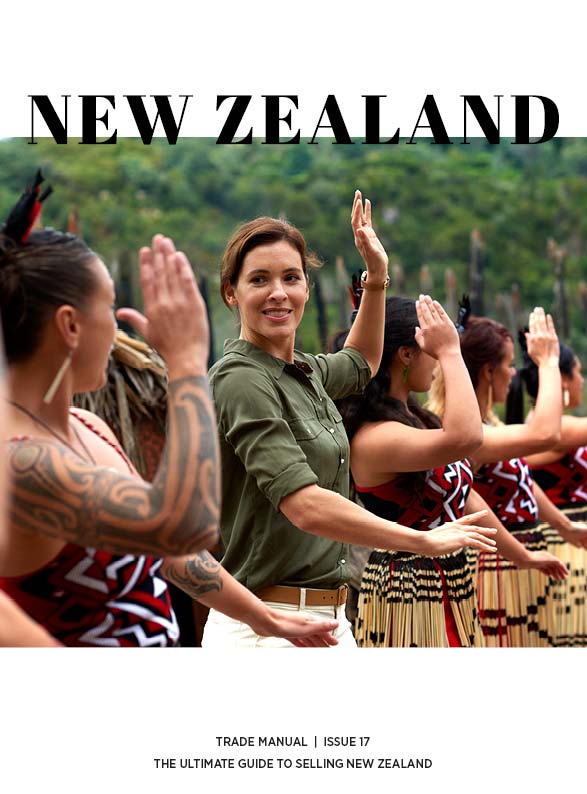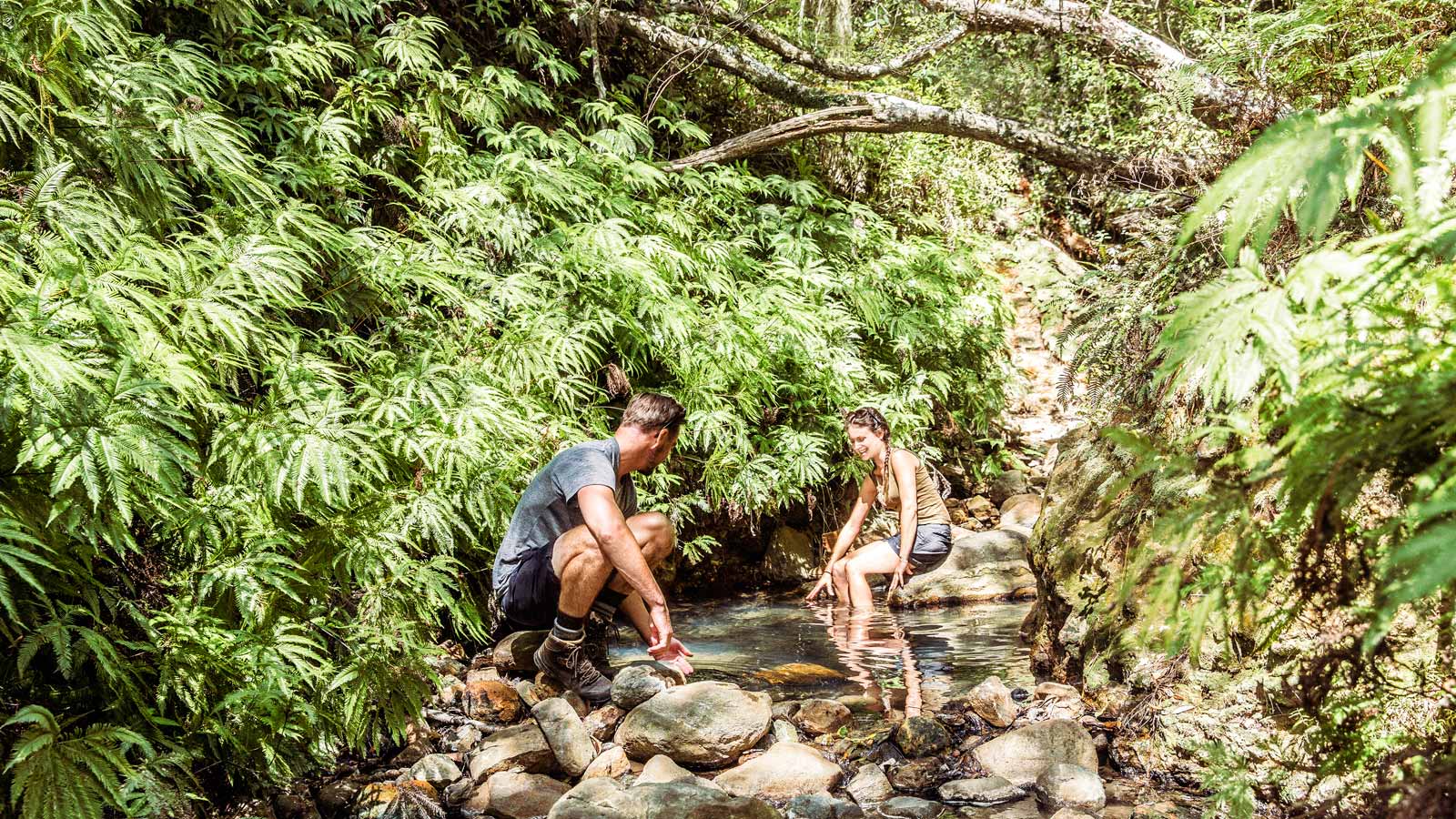New Zealand offers a great range of fishing and hunting opportunities against a backdrop of great scenery. For the ultimate thrill, visitors can try their hands at big game fishing in the Bay of Islands. Opportunities to fish for Brown and Rainbow Trout are available throughout the country: try Rotorua, Taupo, Canterbury and Southland. Salmon fishing can be experienced in Canterbury and on the West Coast. A licence is required for trout fishing and regulations govern quantities and minimum catch sizes. See www.fishandgame.org.nz for detailed information. New Zealand also offers some of the world’s finest waterfowl and trophy hunting. Hunting of some species is encouraged to keep numbers of artificially introduced animals in check and preserve native wildlife, but permits are required for those wishing to hunt on public conservation land.
In all cases, a professional guide will provide the best local knowledge and information, arrange permits if necessary and ensure the safety of your clients in an environment that can be unpredictable. For more information on fishing and hunting, see www.fishnhunt.co.nz or www.fishandgame.org.nz.
Big Game Fishing
Big game fishing is an unforgettable thrill. The sheltered waters of the Bay of Islands are renowned world-wide for their Marlin, Kingfish and Swordfish – this was the place that put New Zealand game fishing on the map in the early twentieth century, thanks to famed Western writer Zane Grey. Striped Marlin grow bigger in these waters than anywhere else in the world, averaging around one hundred kilos. No licence is required for big game fishing, but chartering a boat with an experienced skipper is the recommended approach.
Fly Fishing
Opportunities to fish for trophy-sized Brown and Rainbow Trout are available throughout the country: the lakes of Rotorua and Taupo, and the rivers of Canterbury and Southland are particularly popular locations. Salmon fishing is also on offer in Canterbury and on the West Coast. A licence is required for trout fishing and regulations govern quantity of fish and minimum catch sizes. Licences can be obtained from New Zealand sports shops – visit www.fishandgame.org.nz for regulations – but it’s best to hire a professional guide who can help your clients with local knowledge. Heli-fishing is an option that is becoming increasingly popular. Your clients will be transferred by helicopter to the remotest of secret fishing spots in New Zealand’s backcountry.
Hunting
New Zealand offers some of the world’s finest waterfowl or trophy hunting. Hunting is encouraged to reduce numbers of some artificially introduced species and conserve native wildlife. Hunting Permits are required and these can be obtained from regional Department of Conservation offices. Visitors should hire the services of a professional hunting guide – New Zealand’s wilderness is physically demanding and high country weather is unpredictable.
The Angler’s El Dorado
In the early 20th century, the outdoor attractions of New Zealand became widely known through the adventures of Zane Grey. A hugely successful writer of popular Wild West novels (many of which were made into films), Grey visited New Zealand in 1926 and was captivated by the experience of game fishing in the Bay of Islands (including a memorable episode in which he battled against a feisty Mako Shark). On Urupukapuka Island, Grey established a base that attracted many rich and famous visitors eager to experience a slice of Grey’s adventurous life. This, and the publication of a bestselling book called Tales of the Angler’s El Dorado, New Zealand, helped make the Bay of Islands one of the world’s foremost game fishing destinations, and visitors can still experience the thrill today.
Big Fish Stories
Trout are not native to New Zealand, but the country’s rivers and lakes have turned out to be an ideal habitat for the species. Rainbow Trout from California were introduced to New Zealand in the early 1880s and they now thrive throughout the country, growing to an average of 1.5 to 2 kilograms. Every year a handful of lucky anglers land fish up to 7 kilograms! Brown Trout are even larger. Introduced in the 1860s, this species is established throughout the country, growing to an average of 1 to 3 kilograms in rivers. In lakes they can grow to more than 10 kilograms.
Big Game
New Zealand’s 19th century European settlers brought with them species of animals that were familiar in their homeland. Introduced into a fertile, temperate habitat with no natural predators, they thrived, often growing to larger sizes than they did in their original home. Hunting is encouraged in New Zealand to control the numbers of these introduced species, although all hunters are required to carry a licence (see www.fishandgame.org.nz for information). Game species in New Zealand include Wapiti, Red Deer, Sika Deer, Rusa Deer, Sambar Deer, Whitetail Deer, Fallow Deer, Himalayan Thar, Austrian Chamois and Wild Pig.
Licences & Permits
Fish Licence Issued by Fish and Game New Zealand and required to fish for trout or salmon. 24-hour or seasonal licences are available.
Game Bird Licence Issued by Fish and Game New Zealand and required to hunt for waterfowl, pheasant and quail. One-day or seasonal licenses are available.
Hunting Permit Issued by the Department of Conservation and required if your clients wish to hunt on the nation’s national park and conservation estates. Can be arranged by a hunting guide.
Visitors Firearms Licence Issued by the New Zealand Police and required to bring a hunting weapon into the country. A licence from your clients’ home country may be required.

